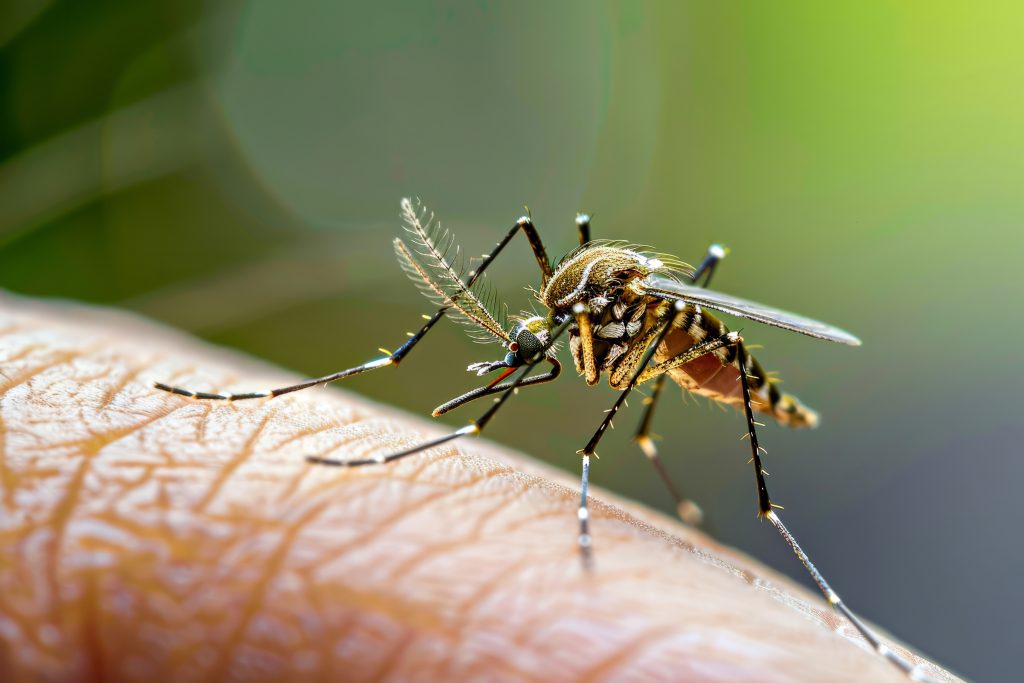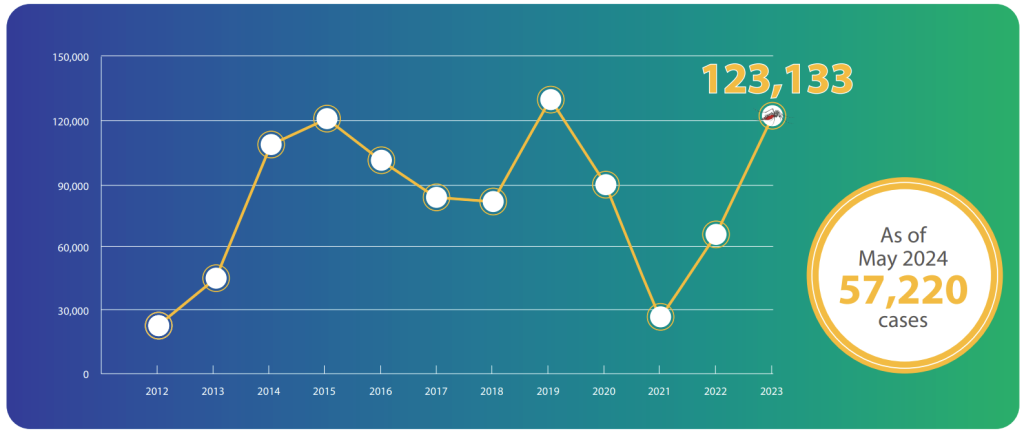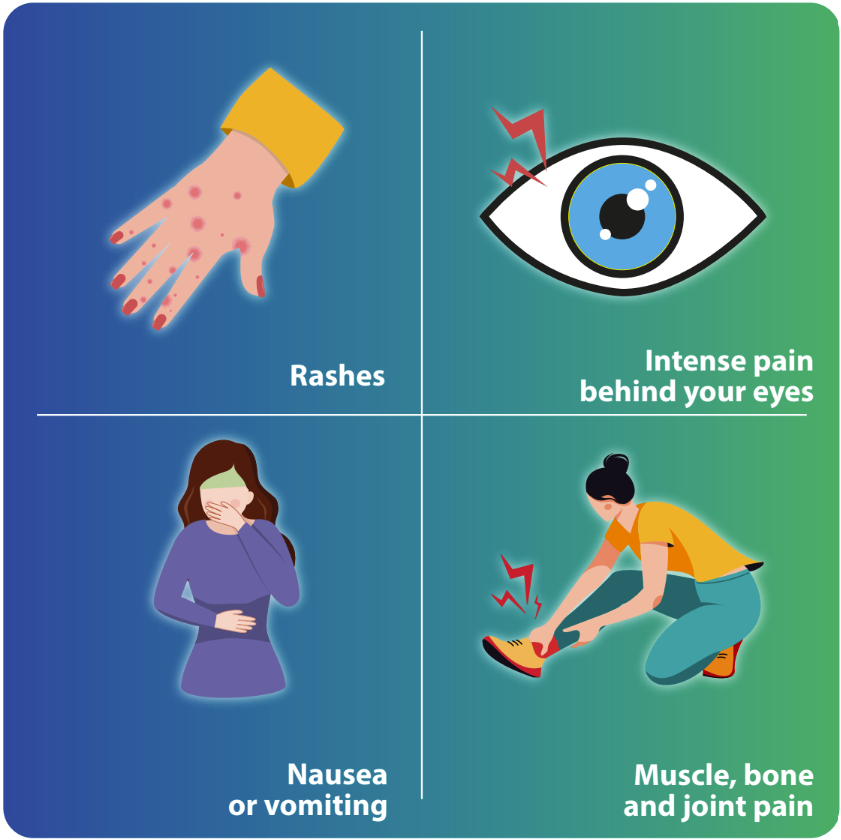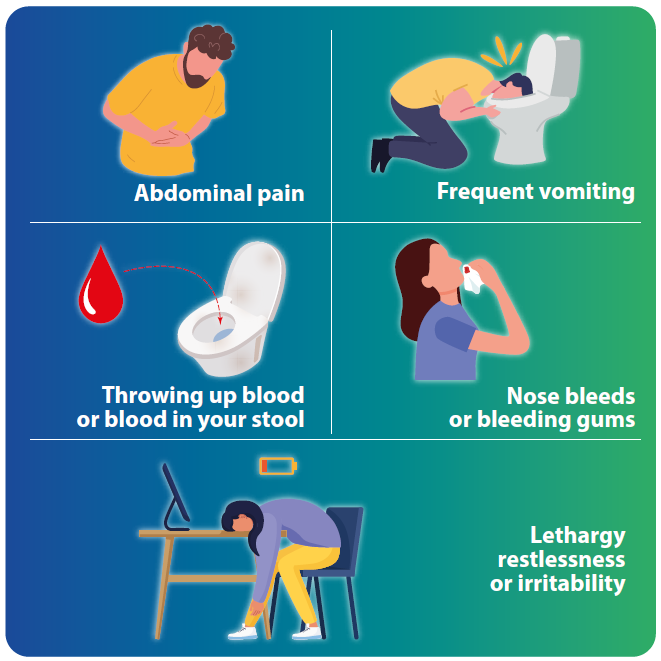
Understanding Dengue Fever
Dengue fever, a viral illness transmitted by Aedes mosquitoes, is an increasing global concern. It is caused by four serotypes of the dengue virus (DENV-1, 2, 3, and 4).1-3 An initial infection with one serotype grants lifelong immunity to that strain but only temporary and partial protection against the others. Subsequent infections with a different serotype raise the risk of severe complications, particularly in children and older adults.
Why Is Dengue Fever a Growing Concern?
The global impact of dengue fever is substantial, affecting nearly 400 million people annually.3,4 While many cases are asymptomatic, those with symptoms often experience a range of discomfort. Severe cases, known as Dengue Haemorrhagic Fever (DHF), can be life-threatening and require urgent medical intervention.
Alarmingly, the number of dengue cases has been increasing. Between January and May of this year, cases rose by 34.3% compared to the same period last year.2 In 2023, the World Health Organisation (WHO) reported nearly five million cases worldwide, with over 5,000 deaths, marking a significant increase from previous years.3

Annual dengue cases in Malaysia showing an upward trend. Malaysia Dengue Prevention and Control. Disaster Relief Operational Update 2024.
Recognising the Symptoms
Besides high fever, dengue fever typically presents with the following symptoms:1,3,4

The Risks of Severe Dengue1,3
DHF can cause critical complications, including bleeding and organ impairment. This condition is likely to occur between 24 to 48 hours after the fever subsides, making timely medical intervention crucial. Warning signs include:

These symptoms call for immediate medical attention, as severe dengue can be fatal without proper care.
Managing Dengue Fever1,3,4
Currently, there is no specific antiviral treatment for dengue fever. Management primarily focuses on symptomatic relief:
Prevention is key to reducing the risk of dengue fever. This includes:1,3
The Role of Vaccination5
Vaccination provides a proactive measure against dengue fever. The QDENGA vaccine is designed to protect against all four dengue virus serotypes and is recommended for individuals aged four and above, regardless of their dengue infection history. Clinical studies have shown that the vaccine can reduce dengue cases by 80% and hospitalisations by 90%, offering significant protection in endemic areas.
Take-home Message
Dengue fever poses a significant public health challenge, particularly in regions where the disease is endemic. Awareness and preventive measures are essential to mitigate the impact of this disease. If you suspect you may have dengue fever, seek medical advice promptly. Staying informed and taking preventive actions can help protect you and your loved ones from this potentially severe illness.
Like what you read?
Let us know what you think.
Contact us for any comments and enquiries:
E: info@mediconnexionsconsulting.com
T: +603 7832 0188
Mediconnexions Consulting Sdn. Bhd. offers a wide range of integrated marketing and communications services related to the medical, pharmaceutical and nutritional sciences.
Visit our website at www.mediconnexionsconsulting.com
Medical webinar organiser Malaysia, creative agency for medical Malaysia, medical conference organiser, medical digital marketing agency, medical marketing agency, medical writer Malaysia, medical writer.
References: